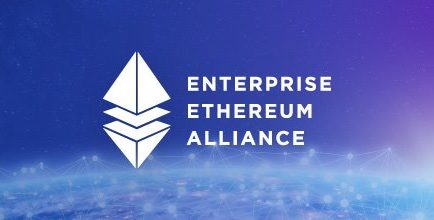
Enterprise Ethereum Alliance (EEA), a member-led industry
organization focusing on the use of the Ethereum blockchain technology in enterprise,
has opened a regional office in China. The new office will provide local
support to China EEA members, leveraging the organization’s standards, working
groups, and resources to help them achieve business results, the organization
said on Wednesday.
Formed in 2017, the EEA is an organization dedicated to promoting
the use of Ethereum for industry use. It aims “to develop open, blockchain
specifications that drive harmonization and interoperability for businesses and
consumers worldwide.”
The EEA now counts more than 385 member companies and over
1,650 individual members. Board members include Microsoft, Accenture,
ConsenSys, CME Group, Santander and JP Morgan.
The launch of the China office is part of the EEA’s ongoing
efforts to open more offices around the globe as it pushes to accelerate the
global adoption of its standards and associated certification programs in the
business world. Others of the EEA’s regional offices in Asia include Japan and
South Korea.

Dr. Weijia Zhang, Wanchain’s vice president of engineering, has
been appointed as the EEA regional head in China. Zhang will be responsible for
supporting the advancement and adoption of EEA’s standards by taking part in
local hackathons, workshops, training sessions, and conferences.
“For each office, we identify an accomplished individual who
is passionate about blockchain for the benefit of everyone,” said EEA executive
director Ron Resnick. “Zhang’s blockchain expertise and leadership will help to
accelerate blockchain adoption in China and support activities of EEA’s growing
member base.”
Zhang has extensive research and development, and
engineering experience in blockchain, cognitive sciences, computational fluid
dynamics, software modeling, computer technologies, and industrial standards.
He has published over thirty research and technical papers and has over twenty
patents, granted and pending, in computer and digital technology. For more than
a decade, Zhang served as a principal software engineer at Dell.
“There has never been a more challenging and exciting time
to be in blockchain technology,” said Zhang. “The progress we are seeing across
the industry is very promising, and the EEA’s leadership around blockchain
standardization and adoption are paramount. I look forward to working with the
EEA in China to aid in bringing value to enterprises by utilizing EEA standards,
working groups, and resources.”
In addition to the launch of the EEA regional office in
China, the organization has unveiled plans to form a “token task force” this year,
Resnick told
CoinDesk earlier this week. The group will work on a specification for fungible
ERC-20 and non-fungible ERC-721 tokens that run on top of Ethereum and private
blockchains built on it.
“We want to create a token specification standard for
enterprise tokenization so basically [assets] can be managed in a much better
way with more assurance than what’s happening today,” Resnick said.
